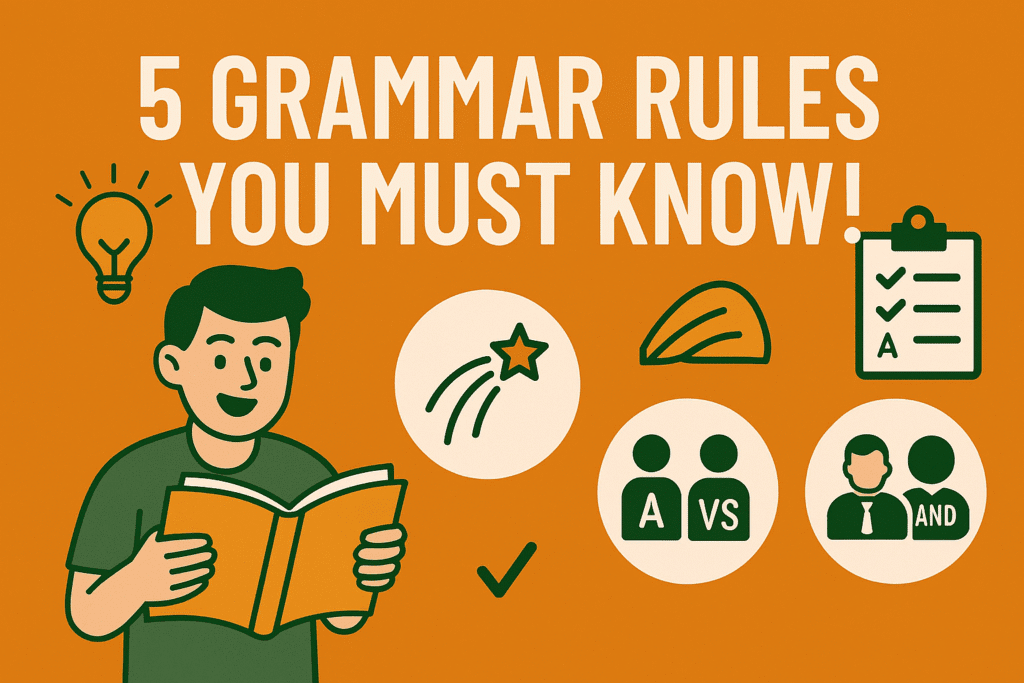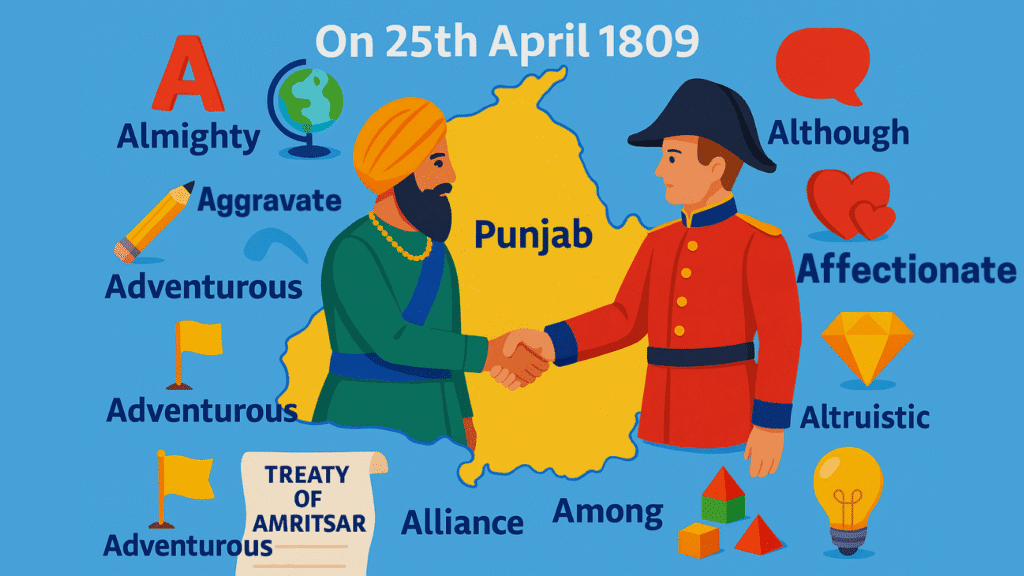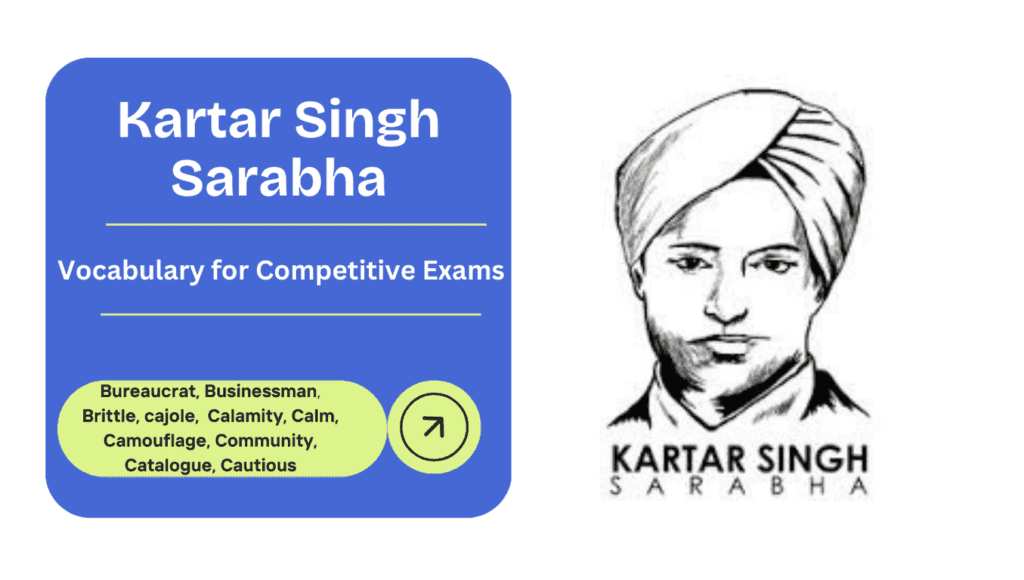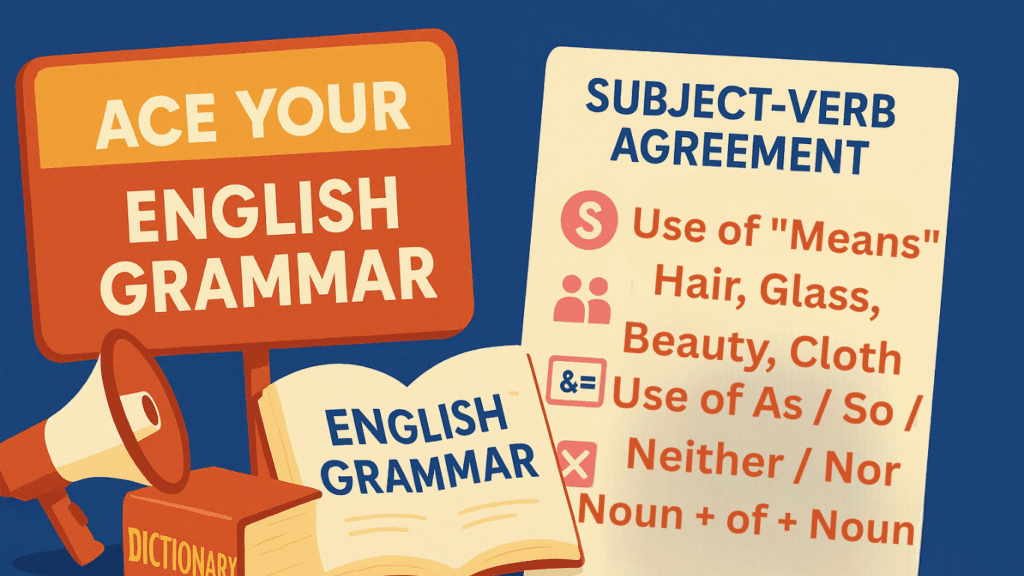
Welcome to RankersChoice.com , your ultimate guide and companion in mastering the fundamentals of English grammar for competitive exams. Whether you’re preparing for SSC CGL, CHSL, PSSSB, Punjab Police, Patwari, Excise Inspector, Senior Assistant, Punjab PCS , or any other government job exam, a strong grasp of basic grammar is essential to ace the English section.
In this article, we bring you the next part of our series on English Grammar Rules , focusing on one of the most important and commonly tested topics: Subject-Verb Agreement .
These rule forms the foundation of correct sentence structure in English and is frequently tested in multiple-choice questions across various competitive exams. Understanding it thoroughly will not only help you score better but also improve your overall language skills.
We’ll break down the concept into simple, easy-to-understand rules, supported by clear examples so that even beginners can follow along without difficulty. By the end of this lesson, you’ll be able to identify and correct common subject-verb agreement errors with confidence.
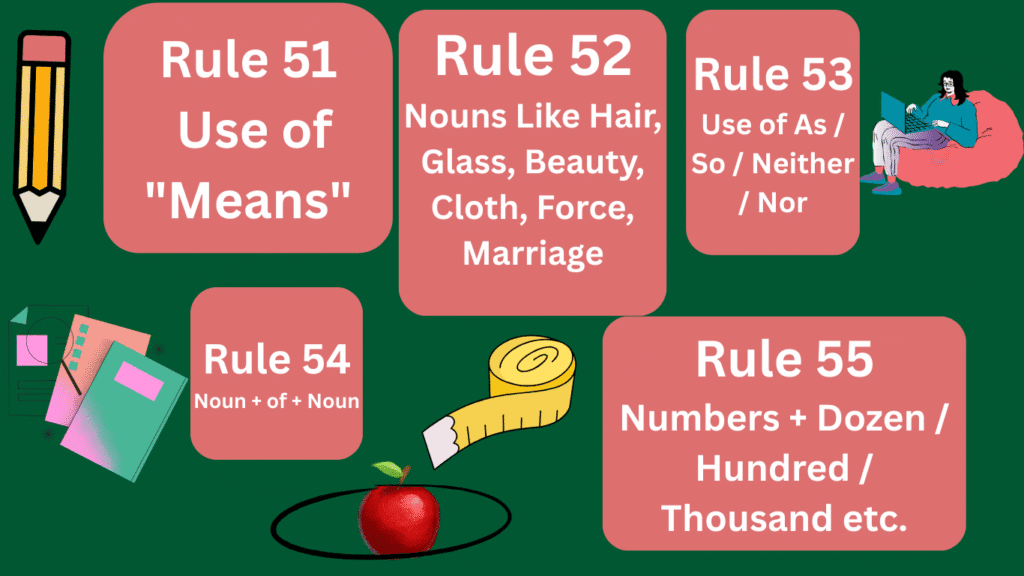
Table of Contents
Rule 51: Use of “Means”
The word “means” can have two different meanings. Because of this, it can be used with both singular and plural verbs.
Meaning 1: Method or Process (Tarika / Upaya)
When “means” means a way or method to do something, it takes a singular verb .
Examples:
- This means of travelling is not fit for me. ✅ Correct
- This means of travelling are not fit for me. ✅ Also Correct
(Both are correct because the meaning is same.)
Meaning 2: Wealth or Resources (Dhan / Sampatti)
When “means” means money or income, it takes a plural verb .
Examples:
- His means are very small. ✅ Correct (He does not have much money)
- His means is very small. ❌ Incorrect
🔹 To explore more articles on English Grammar and strengthen your language skills for competitive exams, click here.
Rule 52: Nouns Like Hair, Glass, Beauty, Cloth, Force, Marriage
Some nouns look singular but can be used as plural in special cases. Below is a table showing these nouns, their general meaning, and the type of verb they take.
| Noun | General Meaning | Countable? | Verb Type |
|---|---|---|---|
| Hair | Hair / Strand | Usually Singular | Singular Verb |
| Glass | A piece of glass | Usually Singular | Singular Verb |
| Beauty | Beauty / Attractiveness | Usually Singular | Singular Verb |
| Cloth | Fabric / Material | Usually Singular | Singular Verb |
| Force | Power / Strength | Usually Singular | Singular Verb |
| Marriage | Wedding / Union | Usually Singular | Singular Verb |
Examples:
- Her hair is black. ✅ Correct
Her hairs are black. ❌ Incorrect - A glass is on the table. ✅ Correct
Two glasses are on the table. ✅ Correct
Note: When “glass” means eyeglasses (chashma), it is always plural. So we use a plural verb.
Example:
- His glasses are new. ✅ Correct
- His glasses is new. ❌ Incorrect
- The beauty of Veena is incomparable. ✅ Correct
The beauty of Veena are incomparable. ❌ Incorrect
But when “beauty” means beautiful people or things, it becomes countable. Then we can use a beauty or two beauties .
Examples:
- A beauty was waiting for you. ✅ Correct
- Two beauties were waiting for you. ✅ Correct
- This cloth is very attractive. ✅ Correct
But when “clothes” means clothes (vastra), it is always plural. We use a plural verb .
Examples:
- His clothes are old. ✅ Correct
- His clothes is old. ❌ Incorrect
- The force of will is above all. ✅ Correct
But “forces” can mean army units (like army, navy, air force). In that case, it is plural.
Examples:
- Two thousand forces have been sent to Kashmir. ✅ Correct
- Marriage is a turning point of life. ✅ Correct
But “marriages” means more than one wedding. In that case, it is plural.
Examples:
- A marriage was arranged between Ajit and Rekha. ✅ Correct
- Two marriages were arranged in my village last year. ✅ Correct
Rule 53: Use of As / So / Neither / Nor
After as , so , neither , nor , the verb agrees with the subject that comes after them.
Examples:
- Rita is a singer, as is her sister. ✅ Correct
- She wants to help you; so do I. ✅ Correct
- I do not like him, neither does she. ✅ Correct
- My mother does not help me, nor does my sister. ✅ Correct
🔹 For more insightful articles and updates on current affairs, feel free to explore our website through this link.
Rule 54: Noun + of + Noun
When the subject is made of two nouns joined by of , the verb agrees with the first noun (the one before of ).
Examples:
- The students of this class are smart. ✅ Correct
- The students of this class is smart. ❌ Incorrect
🔹 Explore the vibrant history and culture of Punjab, from its ancient roots to its modern traditions, by diving into our detailed articles—click here to learn more!
Rule 55: Numbers + Dozen / Hundred / Thousand etc.
When we use numbers like one, two, three, four , etc., with dozen, hundred, thousand , the verb must be plural .
Examples:
- Two dozen pens are here. ✅ Correct
- Two dozen pens is here. ❌ Incorrect
- Five hundred boys study in DAV school. ✅ Correct
- Five hundred boys studies in DAV school. ❌ Incorrect
Note:
(i) Never add s to dozen, hundred, thousand when they come just after a number.
Wrong:
- Two dozens
- Five hundreds
- Six thousands
- A dozens
- A hundreds
- A thousands
Correct:
- Two dozen
- Five hundred
- Six thousand
(ii) But when dozen, hundred, thousand are used with of , then we can add s .
Examples:
- Thousands of students have passed. ✅ Correct
- Thousands of students has passed. ❌ Incorrect
- Dozens of apples have been bought. ✅ Correct
- Dozens of apples has been bought. ❌ Incorrect
🔹 Master the fundamentals of Punjabi grammar with our comprehensive guides and resources—click here to enhance your understanding of syntax, vocabulary, and linguistic nuances!
Understanding and applying the rules of subject-verb agreement is essential for anyone preparing for competitive exams. These rules help you build a strong foundation in English grammar, which is a key part of many government job exams such as Patwari, PSSSB, SSC CGL, CHSL, Punjab Police, Excise Inspector, Senior Assistant, Punjab PCS, and more.
In this article, we covered Rules 51 to 55, which deal with special cases of subject-verb agreement. From learning how the word “means” can take both singular and plural verbs depending on its meaning, to understanding how words like “hair,” “glass,” “beauty,” “cloth,” “force,” and “marriage” are used in different contexts, you now have a clearer idea of how grammar works in real exam-based sentences.
We also looked at how phrases like “as,” “so,” “neither,” and “nor” affect verb usage, and how to handle subjects that are formed using “noun + of + noun.” Additionally, we learned the correct use of numbers with words like “dozen,” “hundred,” and “thousand,” which often confuse students during exams.
These rules may seem small, but they play a big role in helping you score better in the English section. The key is to practice regularly and understand the logic behind each rule. With time and consistent effort, these concepts will become second nature to you.
Always remember: grammar is not just about rules — it’s about using language correctly and confidently. Keep revising these points, solve related questions, and stay tuned to RankersChoice.com for more easy-to-learn grammar lessons designed especially for aspirants like you.
Wishing you all the best for your exam preparations. Keep learning, keep growing!

